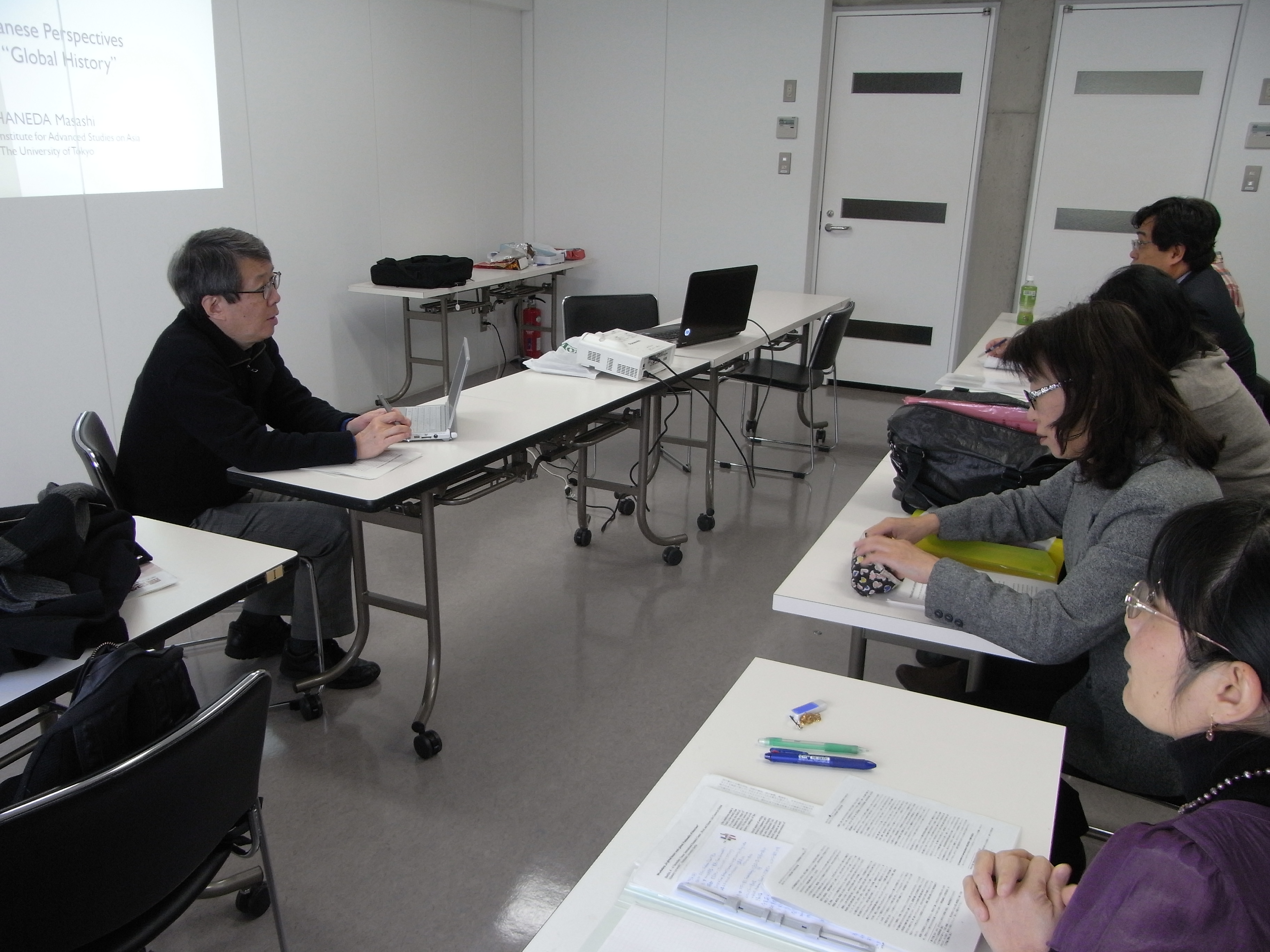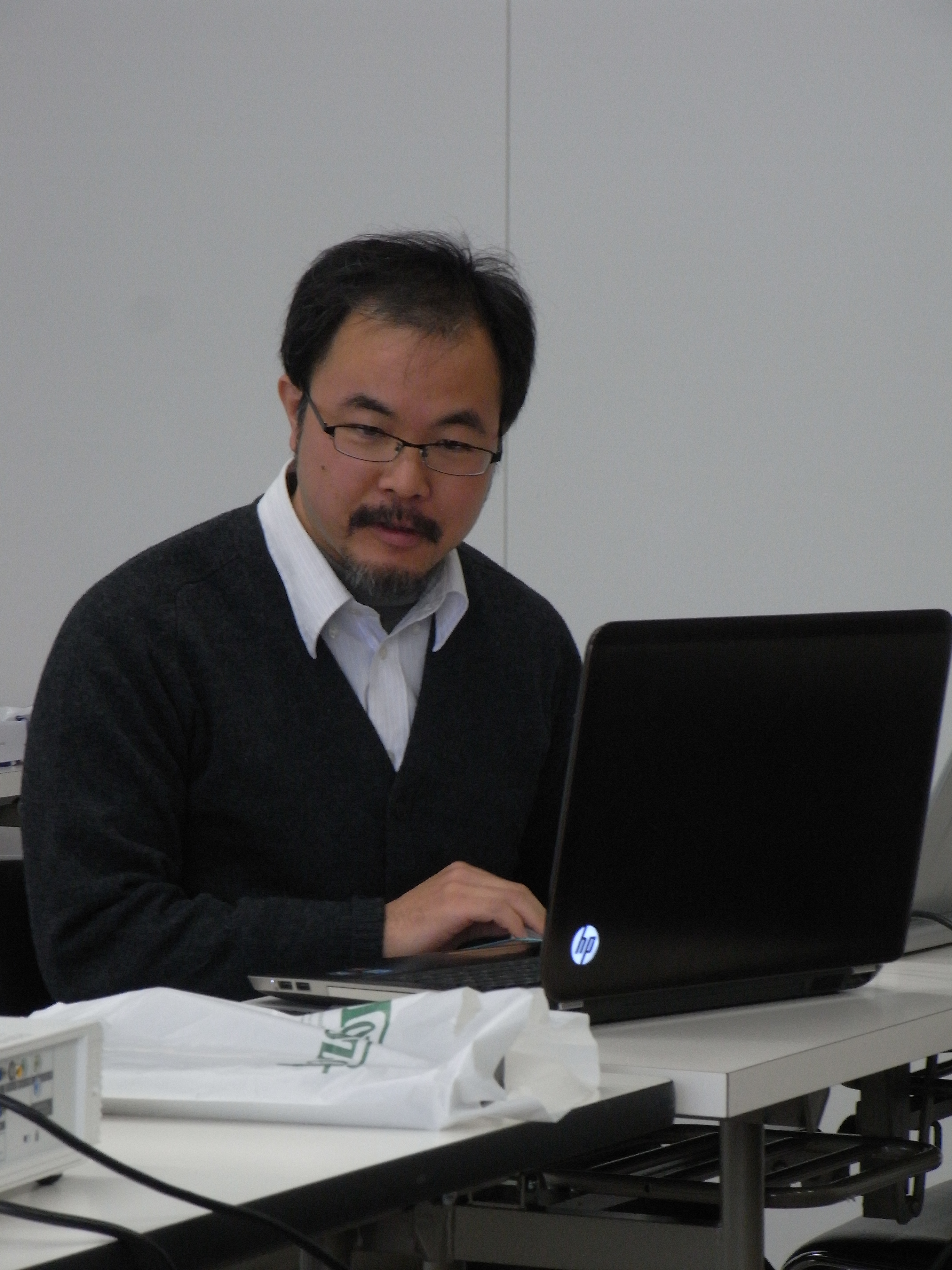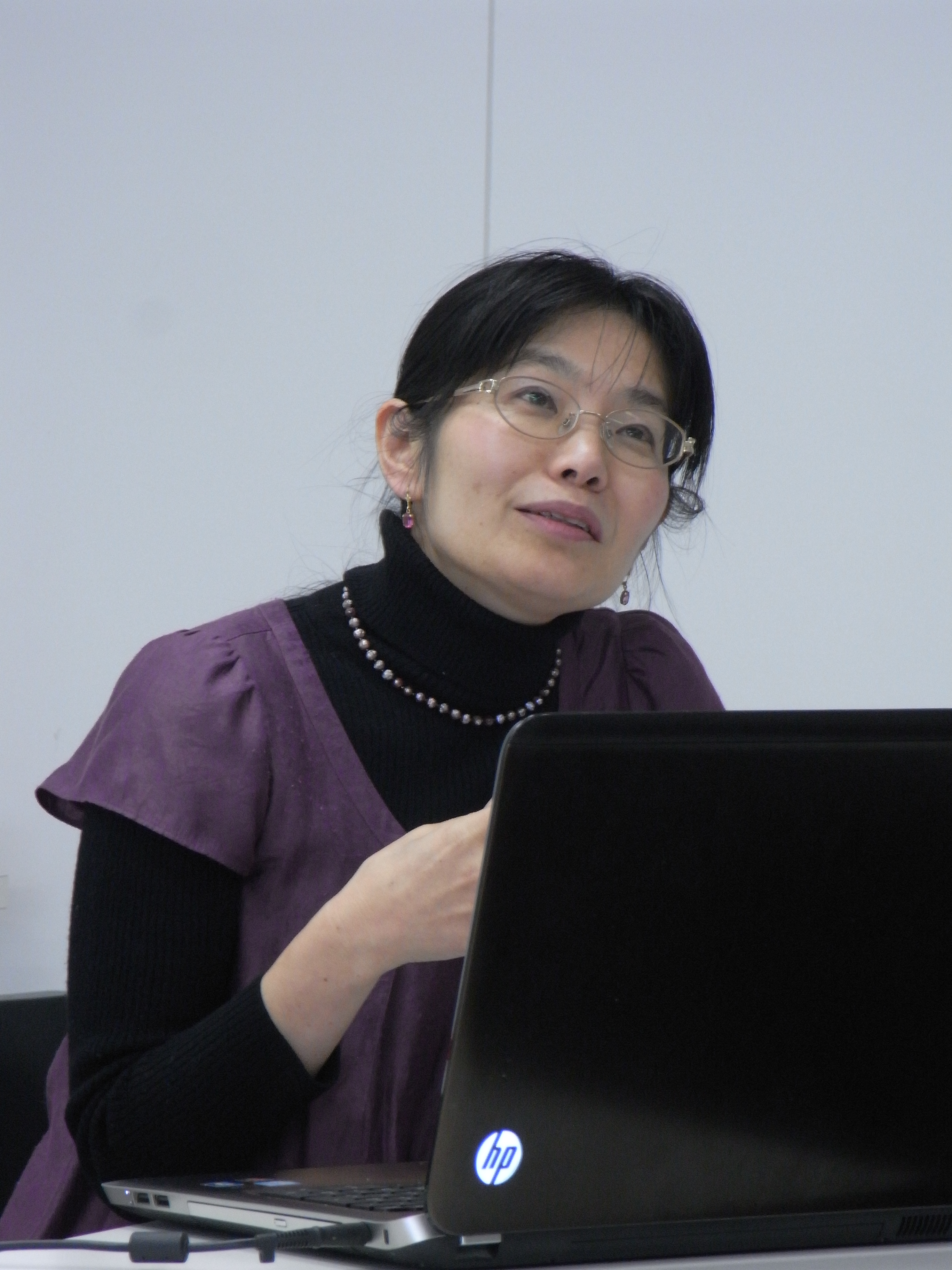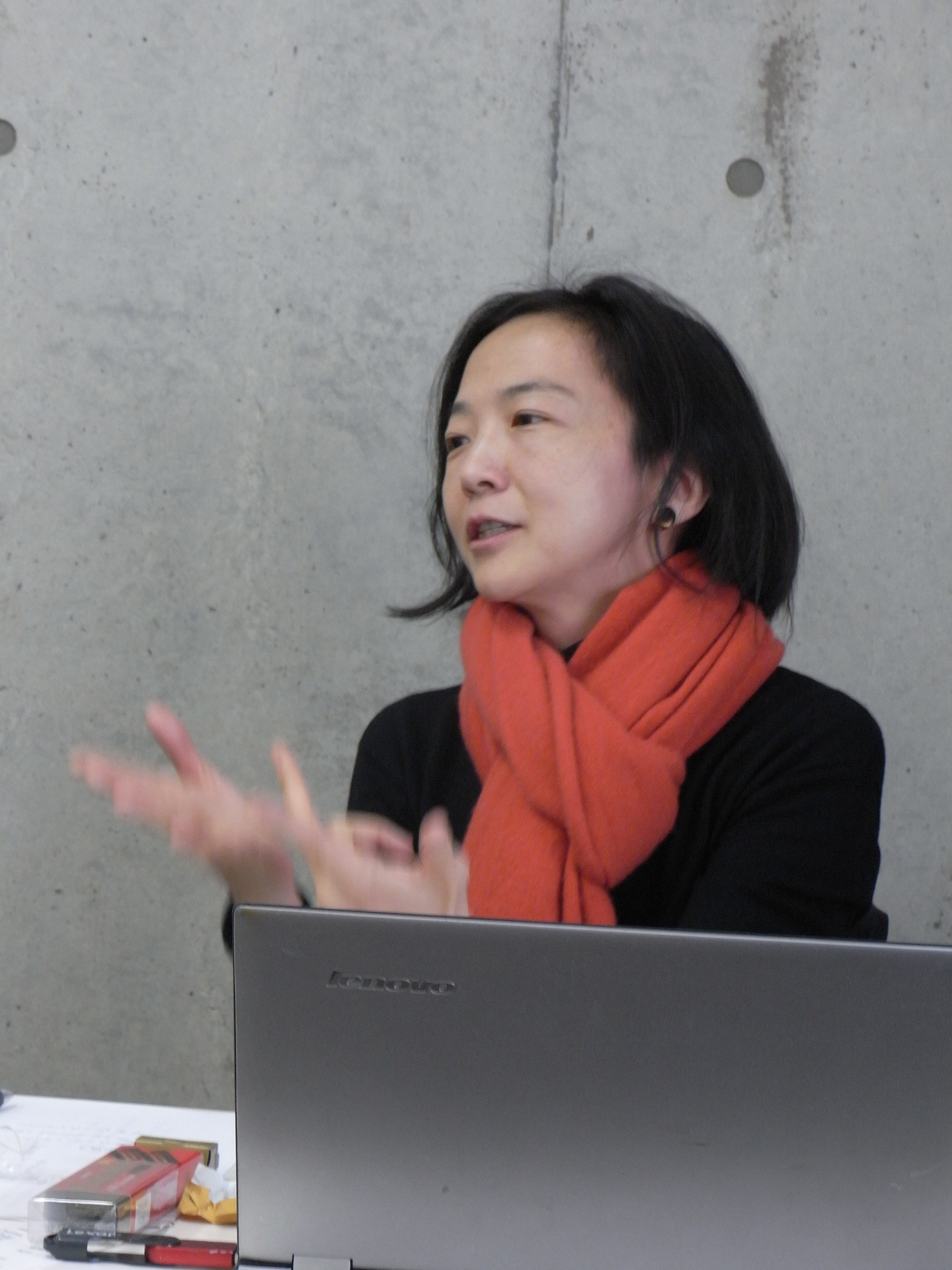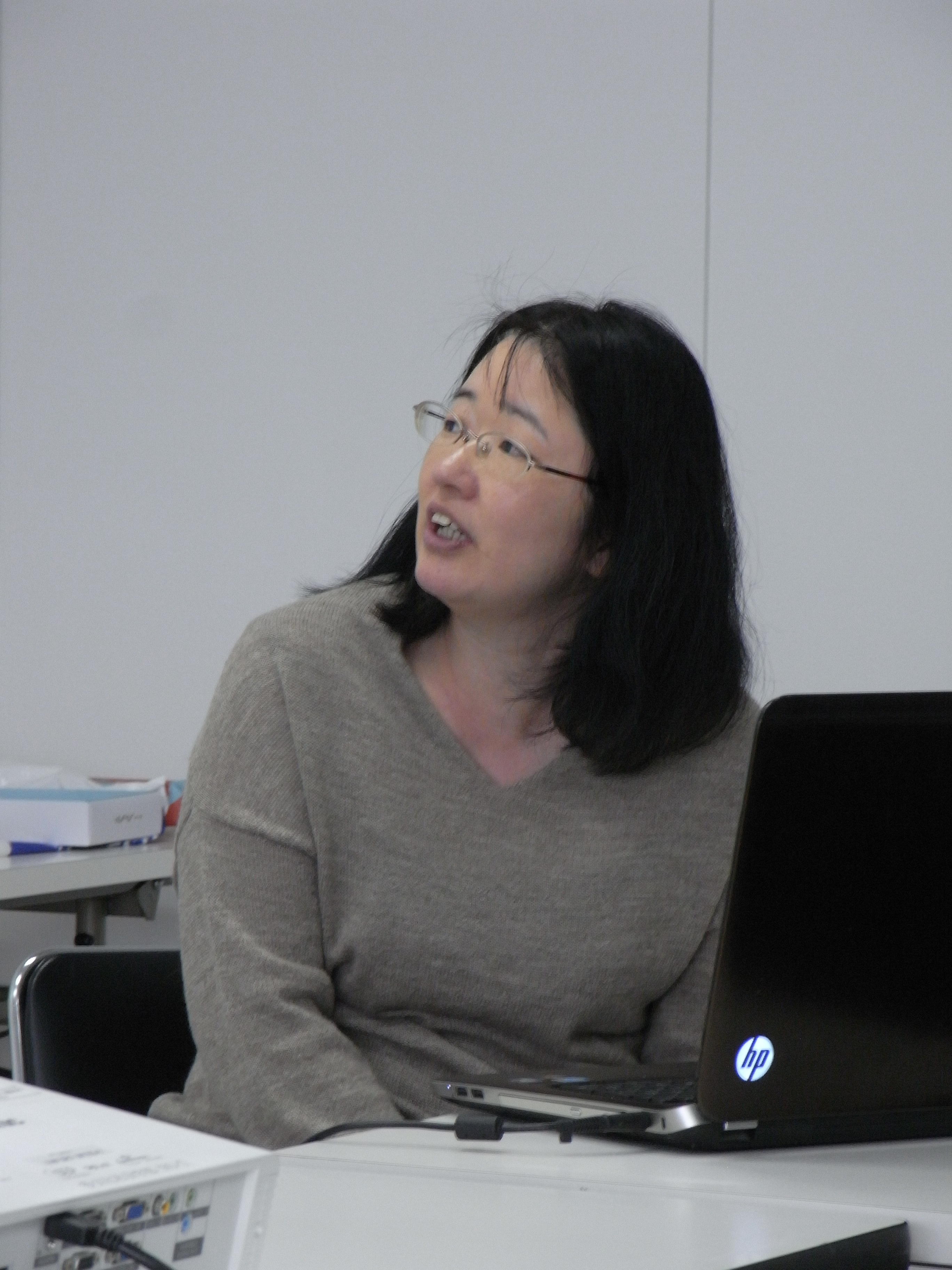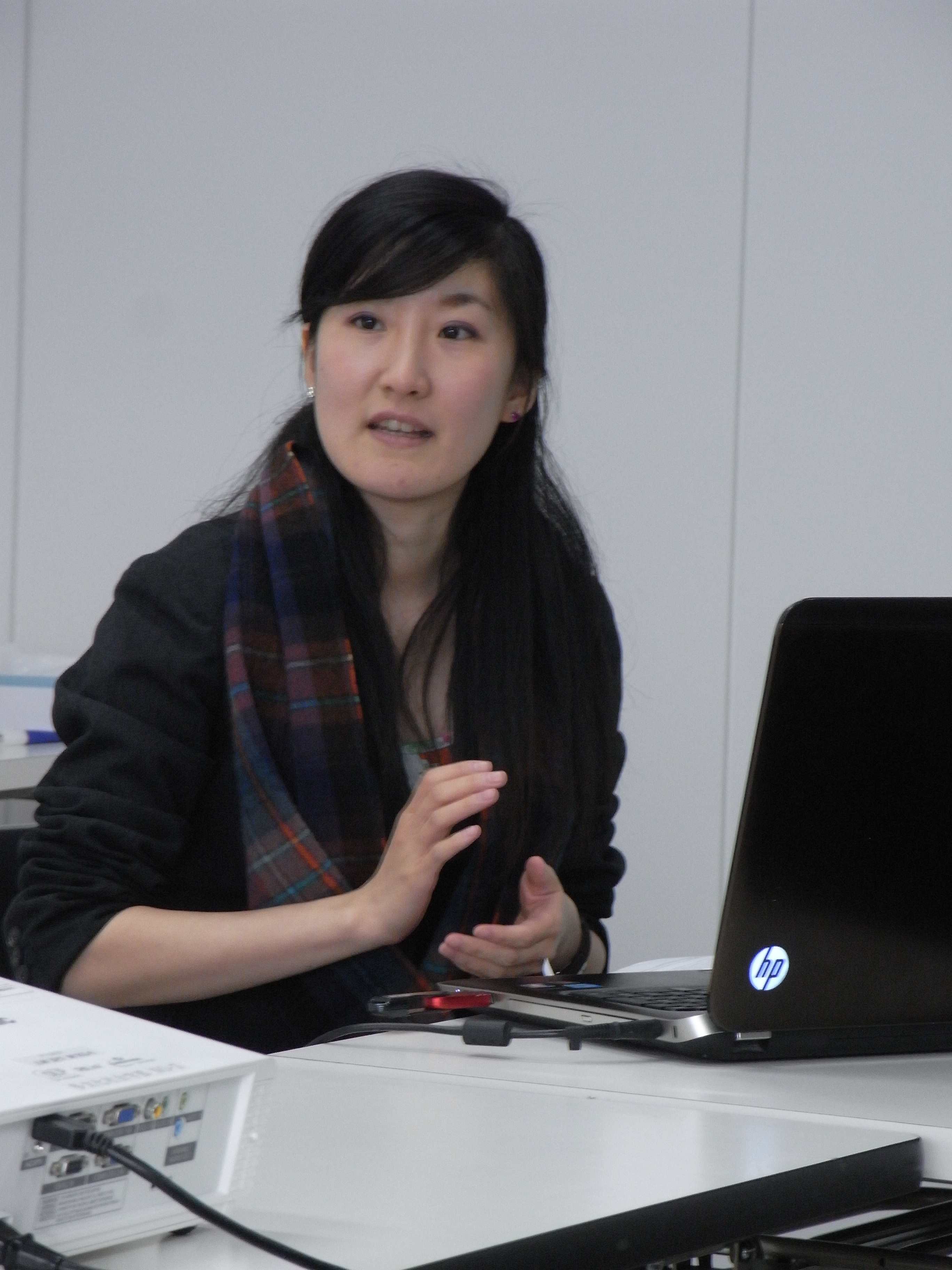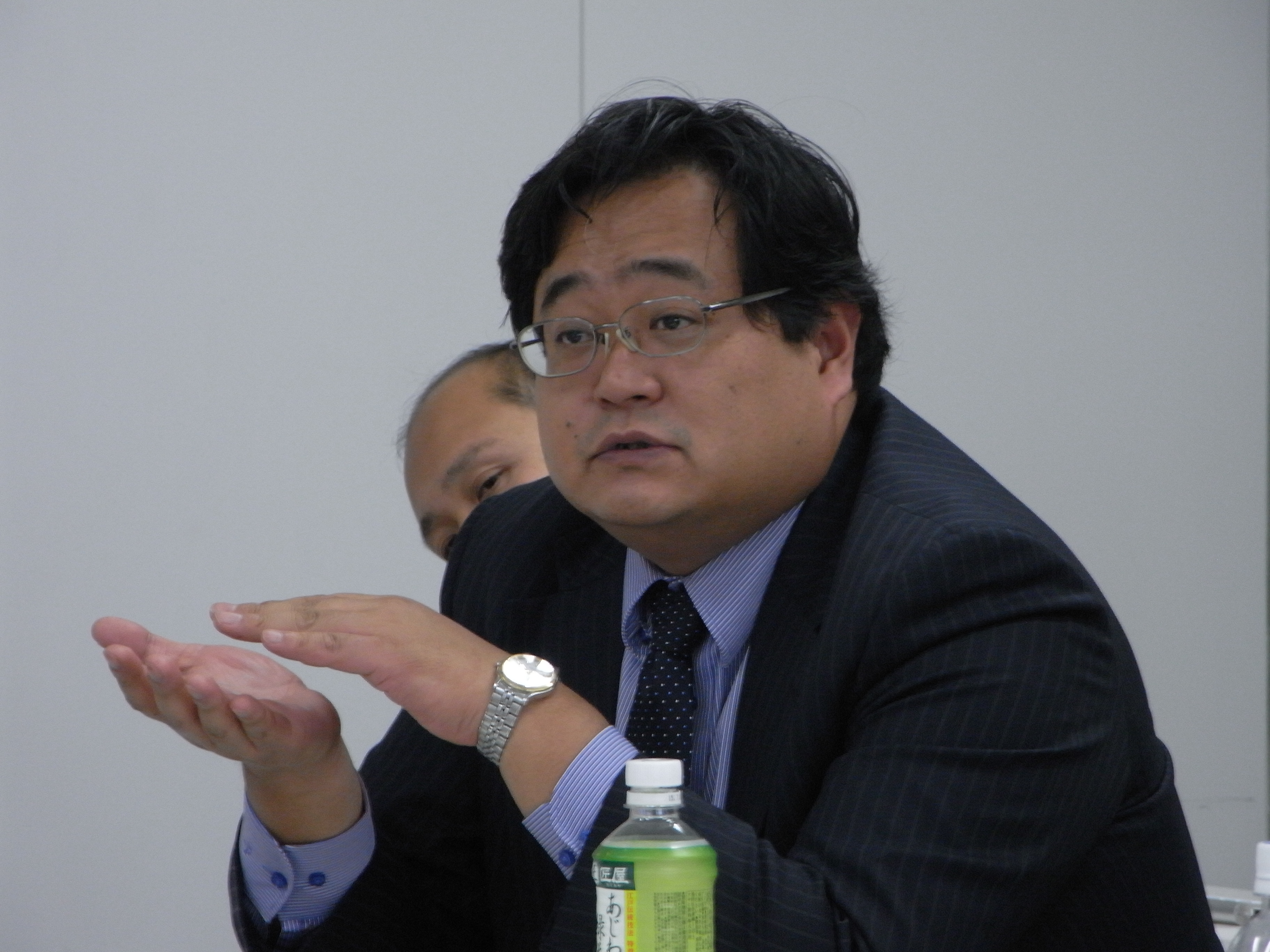2015.01.11
ベルリン報告会 Berlin Workshop Review
1月11日、長崎にて研究会が開催された。今回の研究会は、昨年12月4-6日にベルリンのフンボルト大学において行われたワークショップでの発表・討論内容を共有するものである。フンボルト大学での発表担当者4名が当日の発表内容を発展させ再度問いを投げかけるとともに、オーディエンスとして参加したメンバー2名がコメンテーターとして会議全体の議題や論点を報告した。
羽田正:日本の「グローバル・ヒストリー」の見方
冒頭の主旨説明において、現在日本国内で議論されている新しい世界史(「グローバル・ヒストリー」と同義とされた)がどのようなものであるのかを、他の3拠点パリ、ベルリン、プリンストンのメンバーに紹介する目的で本発表がなされたことが説明された。これは、共同プロジェクトを運営していくための基礎作りにあたる作業であり、それぞれの拠点が描こうとしているグローバル・ヒストリー像や、お互いの立場・歴史観を理解しあうことが試みられた。またこれからの共同プロジェクトで模索される新しい世界史に必要なものとして、①様々な異なる集団の比較・連携・絡み合いの重要性、②グローバルな文脈の中で説明する、③長いタイムスパンの3点が確認された。
このような、歴史観や問題意識などによって異なる互いの立ち位置は、今回「ポジショナリティ」という言葉で何度も言及された。これはベルリン研究会のサブテーマともなっており、東大拠点が今後、日本で発達してきた歴史観や問題を背景にして新しい世界史の模索に取り組んでいく上で、このような問題や課題は必ずしも全世界で共通しているものではないのではないかという問題意識から議論されたものである。羽田氏は、新しい世界史を模索していこうとする姿勢は各拠点とも同じであるが、ここに至る過程は違っており、それが互いの認識の違いにつながるため、まずはそれぞれの「ポジショナリティ」を明らかにして理解を深めていくことが今後の活動に非常に重要であると指摘した。今後も基本概念のひとつとして使用される可能性のある「ポジショナリティ」という言葉には、各研究者の育ってきた地域、使用言語、学問領域のようなパーソナリティとも呼べるような不可変に近いものから、物事の見方や研究テーマのように可変的なものまで様々な要素が含まれている。まずは各自がこの言葉自体を十分に理解し、自らの「ポジショナリティ」について認識することから始めなければならないと感じた。
フロアからは、ベルリン研究会での本発表に対する反応が確認された後、「ポジショナリティ」とは何かということが議論された。また、日本の歴史観や問題意識と言った時、東大や文部省の歴史観を日本の歴史観と言っていいのか、もっと多様な歴史観が存在するのではないかといった指摘がなされた。
伏見岳志:「日本の」世界史のなかの南北アメリカ
日本の世界史の中で南北アメリカ史は、地域区分的にも時代区分的にもおさまりが悪く、それだけに従来の枠組みを考えなおすための重要な要素となり得る。伏見氏は、特に近代西欧による征服以前の南北アメリカ史を考えることが、日本の世界史にどのような可能性を拓くのかという問いをたて、それについて日本の南北アメリカ史草創期の問題意識を今一度説き起こすことによってその問いに答えることを試みた。その際、日本のアメリカ史の泰斗にあたる泉靖一と石田英一郎という二人の人物に着目し、彼らの生み出した草創期の日本の南北アメリカ史の特徴として、敗戦後の植民地の喪失やアメリカ・国連の影響下での学術世界の地殻変動、古代文明という概念の見直し、15世紀以前の伝播論に対するこだわりの3点を挙げた。その上で、日本の南北アメリカ史には、古代文明概念を再検討する、15世紀以前の環太平洋の伝播・連関性を追求するという2つの可能性が潜んでいることを説明した。フロアからは、南北アメリカ史における日本人の研究は大きな影響力を持ったのか、新大陸史・南北アメリカ史・ラテンアメリカ史と言った時のポジショナリティの違いはどのようなものか、南北アメリカ史はアメリカの中でどのような理解をされているのかなどの質問の他、ラテンアメリカというスペイン語圏がグローバル・ヒストリーの中でどのように位置づけられるのかは非常に面白いテーマではないかとの意見が寄せられた。
弓削尚子:啓蒙主義とその闇
弓削氏は、日本の啓蒙主義研究に着目し、この分野がこれまで西洋史家の研究立場をそのまま輸入し理解することに終始しており、日本人研究者の間でどのように受け止められてきたのかという点については十分に回顧されてこなかったのではないかという問題意識のもと、日本の啓蒙主義研究について再検討した。その中で、世界の様々な地域・時代の中に啓蒙主義は存在したのだと主張する2010年のセバスチャン・コンラッド氏の論文に言及し、果たして日本の文明開化を啓蒙主義ととらえることはできるのだろうかという点を中心的論点とした。そして、啓蒙主義の広まりという現象は、ヨーロッパに端を発しそれが全世界に伝播していったとみるべきか、それとも全世界で多発的に起こったと見るべきかという、グローバル・ヒストリーの根幹的問いへと議論を発展させた。フロアからは啓蒙主義の広まりをグローバル・ヒストリーのトピックとして取り上げることの意義や、啓蒙主義に対する非ヨーロッパの反応に対するヨーロッパの反応はどのようなものだったのかといった質問が挙がった。
守川知子:グローバル・ヒストリーと西アジアの立場から
守川氏は、グローバル・ヒストリーを考える際にヨーロッパとアジアといった二項対立に陥ることの危険性を指摘し、より多くの検討軸を加えることで多角的な見方が可能になるのではないかという提言を行った。特に伸縮自在な西アジアという地域をグローバル・ヒストリーを考える際の検討軸のひとつに加えることの重要性を、ネイションステイトや言語、時には宗教さえも超えて行われる聖地巡礼という現象を取り上げて説明した。フロアからは、何を聖地・巡礼と定義するのかという質問の他、空間的な広がりだけでなく時間的広がりをももつ巡礼という現象を時間軸によって比較するとどのようなものが見えるのか、また地域概念を打破する巡礼というトピックを再び西アジアという地域概念の中に還元するよりも、既存の地域概念の上に重ね合わせるほうが面白いのではないかといった意見が寄せられた。
(文責:佐治奈通子)
発表者による報告の後には、杉浦未樹氏と寺田悠紀氏によるベルリン会議の全体論評が行われた。
杉浦氏はまず、ベルリン会議中に出た質問や議論をまとめた、エッカート氏によるコメントを7つの論点に絞り紹介した。それはグローバルヒストリーにおいて時間timeをどう捉えるか、世界の過去についてのトピックのうち、何を取り上げるべきであるのか、グローバルヒストリー研究において比較や絡み合いという議論を越える必要性、これまでの史料の使われ方や既存の用語概念の見直し、といった内容であった。杉浦氏はグローバルヒストリーにおける、英語以外の(あるいは非主要)言語で著された世界各地の研究の取り込みや、これまでになされてきた「グローバルヒストリー」研究について議論する必要性についても指摘し、最後に本プロジェクトに参加している各研究機関の立ち位置について紹介された。
次に寺田氏が、ベルリン会議でのその他での論点について紹介、そしてコメントした。具体的なキーワードとしては、空間、時間軸、トピックの選択が取り上げられた。全体のテーマと取り上げるべき個別の出来事のバランスの難しさについて、また各時代の全体的な状況とともに、従来の歴史研究では見落とされてきたその時代の特徴についても検討すべきかという問題、さらには他者を作り出さない「私たちの歴史」の模索について言及された。
その後全体のディスカッションへと移った。ここでは「貢献contribution」の主語は誰なのかという質問から、私たちがいま描く世界史が人類にどのように貢献するのか、著者の立ち位置や誰に向けて書いているのかということへの重要性について言及があった。また、国家や地域を越えた、同時代的な「学習知transnational learning」というテーマの可能性について提案があった。さらにグローバルヒストリーを扱う各大学のプログラムや組織に関する質問があり、会議への参加者がそれに答える形で今後の見通しについて話し合いがなされ、今年度の活動の総括が行われた。
(文責:辻明日香)
A research meeting was held on January 11. The purpose of the meeting was to share the content of the presentation and discussion at the workshop held at Humboldt-Universität zu Berlin on Dec. 4 to 6 of the previous year. The four presenters at Humboldt-Universität zu Berlin described the content of their presentation while adding further details and posing questions anew. In addition, two members who had participated in the workshop as audience acted as commentators and reported on the overall agenda and points of discussion of the workshop.
HANEDA Masashi: “History of Japanese Historiography and ‘Global History’”
In his opening statement on the purpose of his presentation, Masashi Haneda noted that the presentation was intended to explain the nature of “new world history” (= “global history”) currently being discussed in Japan to researchers from the three other collaborating universities in Paris, Berlin, and Princeton (US). The presentation was intended as work to build a foundation for managing the collaborative project and as a part of the effort to get researchers from the different institutions to understand each other’s perspectives on global history as well as their positionality and perceptions of history. In addition, three items were identified as important/necessary in the process of creating this “new world history” through the collaborative project: (1) comparisons, connectivity, and intercourse between different groups of people; (2) interpretations and explanations of history in a global context; (3) examination of history over a long time span.
In his presentation, Haneda repeatedly referred to such differences in the stance of researchers based on their views of history and awareness of issues using the term “positionality.” The issue of “positionality” was a sub-theme of the workshop at Humboldt-Universität zu Berlin. Haneda discussed “positionality” in the context of the need for researchers at the University of Tokyo to be aware, in the process of developing “new world history” against the backdrop of the Japanese people’s view of history and awareness of issues, that their understanding of the issues and challenges are not necessarily shared by researchers around the world. Haneda pointed out that, while the aspiration of all collaborating research groups to create a “new world history” is the same, the process or path by which each group reached this point differs. He further mentioned that, given that this difference in process results in differences in perspective, it is extremely important in terms of future activities to first clarify and understand each group’s “positionality.” The idea of “positionality,” which may continue to be used as fundamental concept, includes fixed factors such as a researcher’s region of origin/training, language, and academic discipline (which perhaps could be called “personality”) as well as variable factors such as stance and research theme. It seems the first step to be taken is for each group and each researcher to sufficiently understand this concept and to recognize their own “positionality.”
Following a description of the reaction to the presentation at the workshop, the idea of “positionality” was discussed by members of the audience. It was also pointed out that it may be inappropriate to call the perception of history and the awareness of issues at the University of Tokyo and MEXT a “Japanese view of history” because a wide variety of senses of history exist.
FUSHIMI Takeshi: “Searching the Place of American Civilizations in the ‘Japanese World History’”
North and South American history does not fit well into the conventional regional and temporal divisions in the study of world history in Japan and, as such, may serve as an important factor for re-examining the framework of historical studies. Takeshi Fushimi asked what possibilities thinking about North and South American history, especially prior to subjugation by the Western World, would open up for the study of world history in Japan and attempted to answer the question by starting with the awareness of issue that existed in the early stages studies of North and South American history conducted in Japan. To this end, Fushimi focused on two authorities of American history in Japan, Seiichi Izumi and Eiichiro Ishida, and identified three characteristics of early North and South American historical studies carried out by these two: (1) the paradigm shift in the academic world resulting from the loss of colonies following defeat in war and the influence of United States and the League of Nations; (2) re-examination of concept of ancient civilization, and (3) fixation on cultural diffusion theory in the 15th century and earlier. Based thereupon, Fushimi explained that North and South American history can potentially serve as a vehicle for re-examining the concept of ancient civilizations and for investigating diffusion and connectivity within the Pacific Rim in the 15th century and earlier. From the floor, questions were raised related to the degree of influence that studies by Japanese researchers have had on North and South American history, the nature of differences in positionality with regard to New World, North and South American, and Latin American history, and the understanding of North and South American history in the United States. In addition, the opinion was expressed that the position of Latin America, as part of the Spanish-speaking world, in global history is an extremely interesting research theme.
YUGE Naoko: “The Enlightenment and its Darkness”
Naoko Yuge re-examined Japanese research on the enlightenment, based on a view that, up to this point, Japanese enlightenment scholar have focused entirely on importing and understanding the viewpoint of Western enlightenment scholars and have not sufficiently examined how they themselves have had understood the enlightenment. In doing so, Yuge, referring to Sebastian Conrad’s 2010 paper in which Conrad argues that enlightenment philosophy has existed in different regions throughout the world at different times, Yuge focused her discussion on whether the civilization movement (Bunmeiaika) in Japan during the Meiji Era can be considered enlightenment. She then developed this line of reasoning further by asking what would appear to be a fundamental question in global history, namely, whether the enlightenment originated in Europe and subsequently spread to other parts of world or whether it emerged spontaneously in various parts of the world. Questions were raised by the audience regarding the significance of examining the spread of enlightenment as a topic in global history and the differences in reaction to the enlightenment in non-European and European regions.
MORIKAWA Tomoko: “Global History and a View from West Asia”
Tomoko Morikawa pointed out the risk of falling into a view of global history based on a dyadic confrontation between Europe and Asia and proposed that a more multilateral understanding would be made possible by adding even more axes of investigation. In particular, she explained the importance of adding West Asia, a region whose boundaries are changeable, as a third axis of investigation when thinking about global history by taking up the phenomenon of “pilgrimages,” which cross national, language, and, at times, even religious boundaries. In addition to questions related the definition of sacred places/pilgrimage, the question of what can be learned when the phenomenon of pilgrimage is studied in terms of not only geographical spread but, also, temporal spread was raised by audience. The opinion was also expressed that it might be more interesting to overlay the concept of pilgrimage, which supersedes the concept of region, on top of the existing concept of region, rather than to try to fit it back into the regional concept of West Asia.
(Natsuko SAJI)
After the reports from the presenters, Miki Sugiura and Yuki Terada provided comments on the Berlin workshop as a whole.
First, Sugiura outlined the questions and discussions that arose at the Berlin workshop and introduced the 7 points of discussion as summarized by Andreas Eckert in his concluding comments. These included (i) how should “time” be understood global history; (ii) what topics related to the world’s past should be investigated; (iii) the need for global history to move beyond simply comparing and describing the intercourse among regions, and (iv) re-examination of how historical documents have been used in the past and re-examination of existing terminology and concepts. Sugiura pointed out the need to incorporate historical studies from all parts of the world that have been written in languages other than English (or non-major languages) and the need to discuss global history research that has been conducted up to this point. Finally, Sugiura introduced the situation of each institute involved in the Global History Collaborative project.
Next, Terada introduced and commented on other points of discussion that arose at the Berlin workshop. Specifically, Terada commented on the keywords “spatial axis,” “temporal axis” and “topic selection” and referred to the difficulty in finding the right balance between overarching themes and specific events, the need to investigate not only the overall circumstances of the world in each age but also the unique characteristics of each age, which tend to be overlooked in conventional historical studies. She also pointed out the importance of writing history that do not create “others”.
Terada’s report was followed by general discussion. The question “who are the agents of contribution?” yielded discussion and comments related to how world history written by Japanese historians can contribute to humanity and the importance of the writers’ positionality and intended audience. A proposal was also made regarding the potential theme of contemporaneous “transnational learning” that crosses over national and regional boundaries. In addition, a general discussion (summary) of this year’s activities and outlook took place. Each participant responded to questions regarding the global history-related programs and organizations at their respective institutions.
(Asuka TSUJI)









